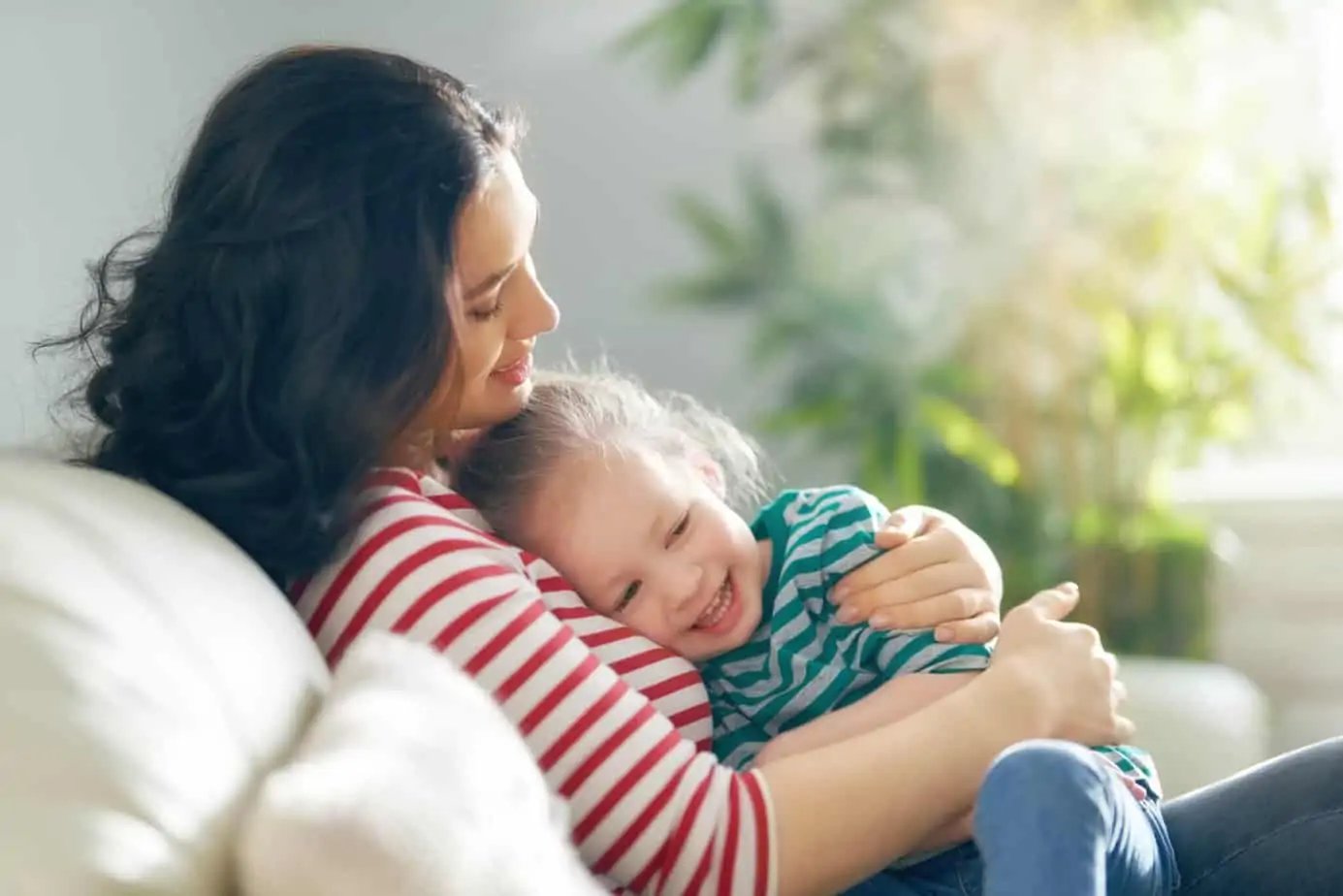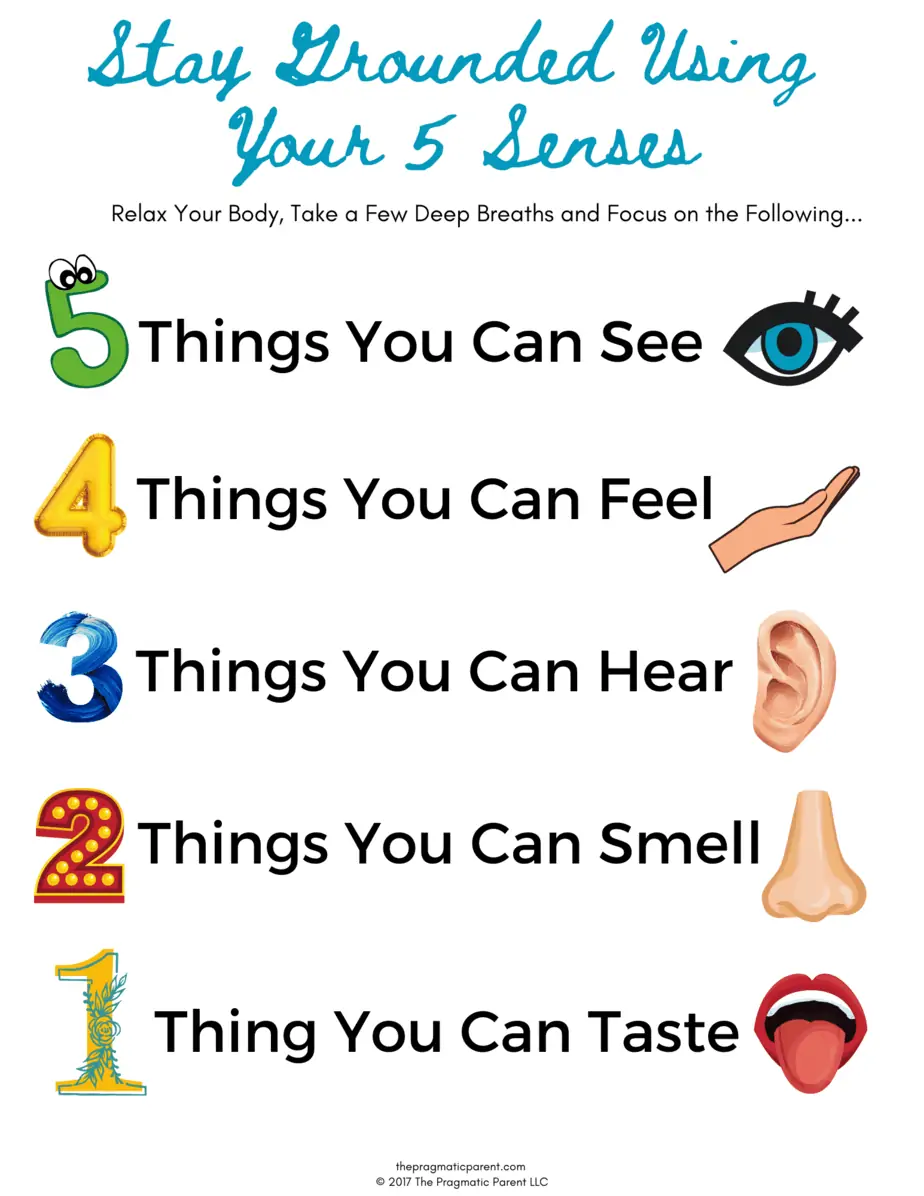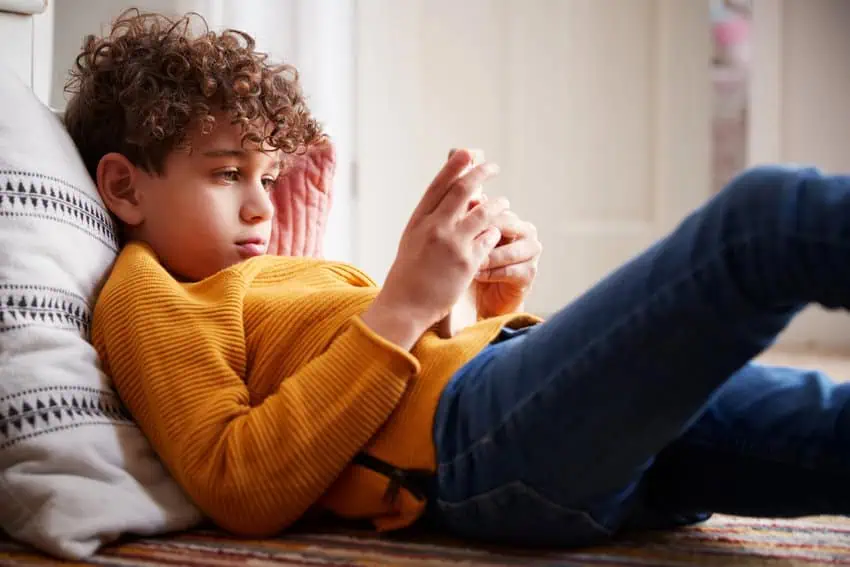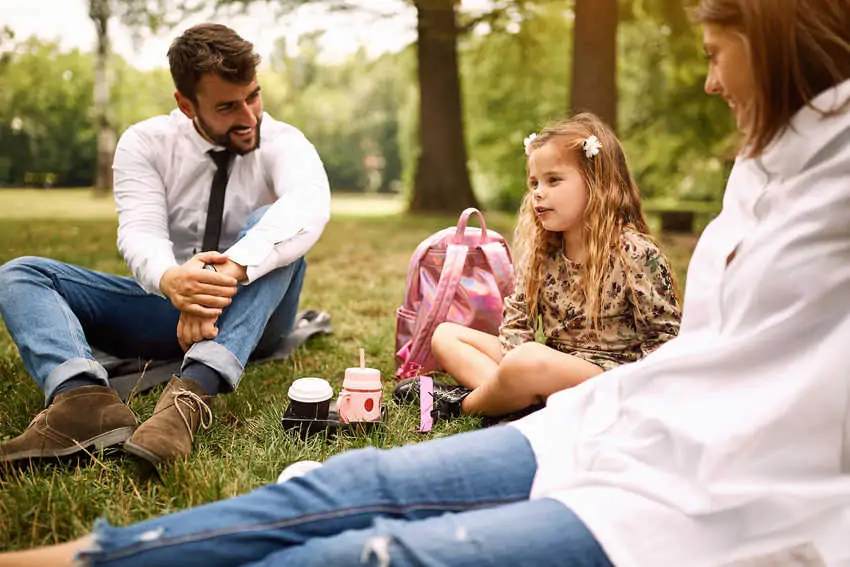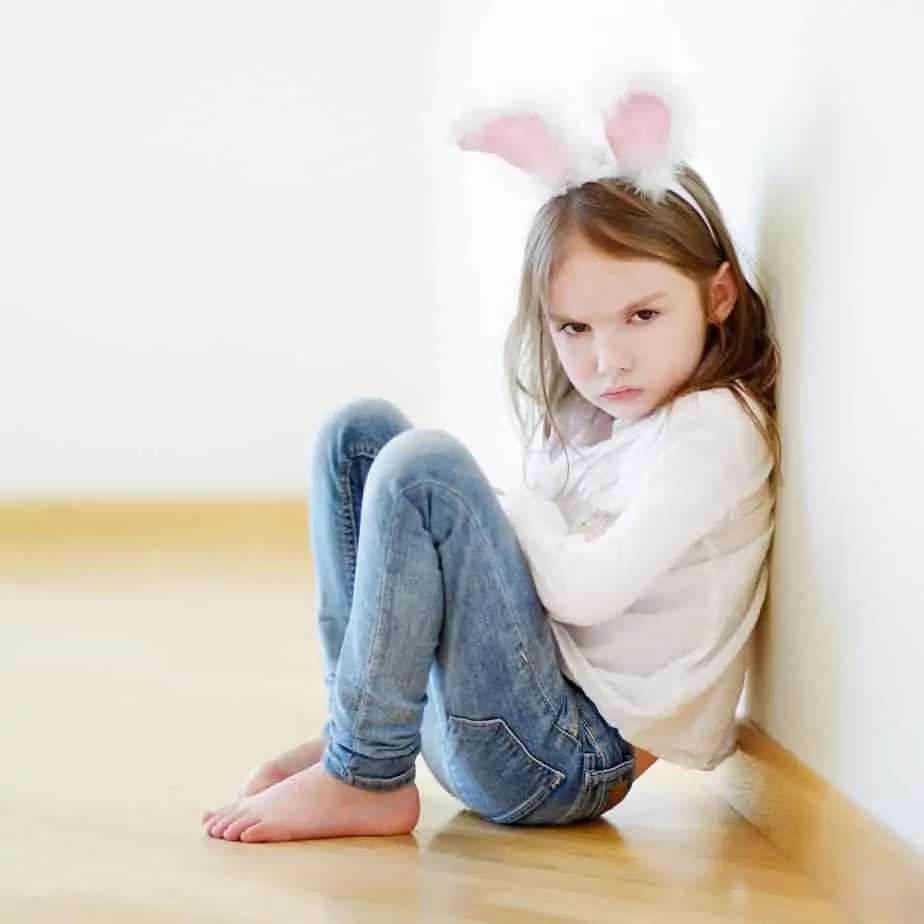How Parenting Behavior Plays a Role in Children’s Negative Behavior & Positive Behavior. How to examine your own behavior to be a role model for your kids.
IMPORTANT: This is the second part of a 4-part series: Get Kids to Listen, Put a Stop to Power Struggles and Stay Calm. If you haven’t read the first part, you can read it here.
Plus, if you’re a parent struggling to get control of their anger and stop yelling, then Calm Parenting: Learn to Stop Yelling eCourse is jam-packed with tools and strategies for calmer days ahead.
Why Parenting Behavior Plays a Role in Children’s Negative Behaviors (and Positive Behavior, too!)
Here’s a truth bomb when it comes to kids not listening and parents getting frustrated:
It’s never just a kid problem.
Trust me, I know how easy it is (or how much sometimes you might want to) redirect the blame instead of taking responsibility for your actions, but real change doesn’t start until you understand this one important fact.
If you aren’t aware of your own triggers, you can’t stop triggering your child.
So, what do I mean by that?
Our personalities can fuel power struggles and bring out certain behaviors in our kids we don’t like. Yep, we easily add fuel to the fire.
I’ll be the first to admit my personality causes me to butt heads with my son and can make situations worse. I like being in control and my stubbornness gets me into power struggles with him.
When I want things MY way, and don’t stop to to listen to his suggestions or take full stock of the situation, it makes things 10x worse.
It’s no surprise, when I’m too controlling, his natural reaction is to push back and we go from 1 to 100 real quick.
A child who can’t flee, will always fight back.
That’s where power struggles, backtalk, tantrums, meltdowns, and all the unpleasant behavior parents dislike begins.
How Do You Know What Parenting Style You Have?
This article will help you figure out (and has a link to a quiz if you want to take it a step further) what parenting style you are, and how to adjust your approach for more cooperation and respect from your kids.
Then…
Once you can see how your parenting style affects your relationship with your children, you can also start figuring out what your triggers are causing you to get upset, lose your patience, or even yell.
Some of the most common triggers to parenting frustrations are everyday occurrences.
This is component of what I teach in my eCourse, Calm Parenting: Learn to Stop Yelling.
While triggers on their own, seem insignificant in the grand scheme of things, when they happen daily, tend to get under your skin more easily.
Examples of Everyday Triggers:
- When your kids are fighting with each other over unimportant things like who get’s to have the first bowl at breakfast, or sit next to you while you read a book to them.
- You’re perpetually running 10 minutes late every morning.
- Asking for a snack 30 times during the day after you’ve already made breakfast, lunch and are about to start dinner.
- Having to repeat yourself 37 times before your kids put their shoes in the shoe bin, not just in the 3-foot space in front of the shoe bin.
- Or when your walk through the door and can’t see the floor because it’s covered in toys, couch cushions and smashed cheerios and your entire life suddenly feels like a mess because of what’s in front of you.
- Loud noise and rough housing every night after a long day and your patience is already razor-thin.
- When you close their door and are in the home-stretch to watching your show on Netflix, when you hear your child ask for one more book, more water, another snuggle…
What’s Behind Your Parenting Triggers?
No matter how aggravating we find our children’s behavior, this is not what causes our upset responses to them.
As easy as it is to place the blame on their behavior, this is only what triggers your reaction.
Underneath that trigger is an entirely different emotion – it’s the ROOT to your frustrations, to your impatience, or anger.
Environment and how you feel play big roles if your child’s behavior is going to send you over the edge or bounce off you rubber.
With everything going on the past 6-months, circumstances are definitely not normal but we all have to remember, a child may be an expert at pushing your buttons, but he doesn’t cause your response.
Dealing with Triggers that make you mad enough to yell? Maybe you don’t want a full eCourse, but you need something… anything to help. The Stop Yelling Handbook is a beginner’s guide to figuring out what the heck is going on and how to get a hold of your emotions.
What causes your response is the ROOT of your Trigger… these are the true feelings and emotions hidden under the surface you need to get to, to understand why your buttons get pushed in the first place.
These are the most common ROOTS to triggers:
- How you feel inside – stressed, annoyed, tired, overworked, unappreciated, etc.
- How your day is going – hard, stressful, you’re sick, the kids are sick, you got some bad news, you’re running late, you don’t have any alone time, etc.
- How your home makes you feel – it’s messy and you’re stressed, you have a ton of chores to catch up on, you are behind on bills, you worry about money, you’ve done the dishes 4 times already that day, etc.
Parenting Behavior is Dictated By What’s Going on Inside
The truth about roots is that it’s all about YOU and what’s going on INSIDE.
It’s your feelings, perception of the situation and how you perceive something is happening or affects you, that triggers you.
Take Action: Parenting Behavior Overhaul
Over the next week, figure out how your personality and parenting style plays a role in your relationship with your kids and ultimately, influences their behavior. Then you’ll be able to find areas to work on.
Also, start taking stock of the times when your kids get on your nerves or you react in a way you don’t like… what was going on at the time, how were you feeling, what’s at the root of your behavior?
Make little notes so you can figure all this out. Once you find your triggers, and the root, you can test out solutions to triggers so they don’t keep coming up time and time again.
Next: Read Part 3 of this series: Getting Kids to Listen without Yelling, Power Struggles and How to Stay Calm
More Resources to Help You with Positive Parenting:
- How Love and Parental Affection Affect Child Development
- How to Learn From Your Anger & Why Anger Isn’t a Bad Thing
- Get Your Home in Order to be a Calm & Happy Mom
- 5-Steps to Control Your Anger with Kids & Stay Calm
- The Brain Science Behind Outbursts (& How to Calm Down Kids)
- Why Aren’t My Kids Listening? 6 Secrets To Helping Kids Hear You the First Time
- How to Get Kids to Listen Without Yelling
Want even more?
Shop All Parenting Resources
Shop all of our parenting resources from self-regulation tools and managing big emotions to building self esteem and confidence. There are resources for all seasons of life!
